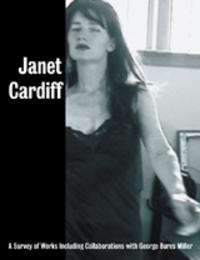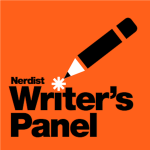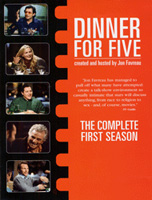Updated: 6/5/16
A few new resources that I find interesting about storytelling in a variety of formats.
The Nerdist Writer’s Panel is a podcast, sometimes recorded live, where television and film writers discuss their work and the industry.
Dinner for Five is Jon Favreau’s multi-seasons series, where film folk (actors, writers, producers) discuss their industry and tell backstage stories over dinner. Some episodes are available on Netflix and Youtube.

James Wood’s book elucidates the act of reading, and thus the act of writing.


Robert McKee’s controversial book on screenwriting is a solid technical reference for plotting and story structure.
 The book of Janet Cardiff’s collaborations with George Burns Miller. The introduction and interview with Cardiff discusses, among other things, the relationship between author and reader; especially how the liminal space between the two furthers the creation of fiction.
The book of Janet Cardiff’s collaborations with George Burns Miller. The introduction and interview with Cardiff discusses, among other things, the relationship between author and reader; especially how the liminal space between the two furthers the creation of fiction.

A technical, artless, dated book by literary agent, Donald Maass, about writing and the publishing industry. I am currently reading this book and will make further comments upon completion. (Notes/Tips before I forget: I find Maass’ writing style off-putting and pretentious. That said, he makes very good points. However, he uses his clients’ books as examples (most of which I have never read or heard of). Unfortunately, using this book as a marketing device for his own clients, he actually undercuts his ideas. Further, a reader might skip to the end of each chapter, where Maass summarizes his points in “Checklists,” ostensibly rendering his narrative obsolete.)

A heady collection of essay regarding overarching themes in literary study (not to be confused with the study of literature). Critical Terms in Literary Study is about how literature is and/or has been studied by intellectuals. As well as the application of theoretical and/or philosophical ideas (e.g., postmodernism) to literature.
I purchased this when applying to graduate school under the assumption that other students would share a common language/understanding of literary terminology (one that I lack). I found this not to be the case in fine arts programs. I have not read all the essays. Although those I have read were interesting, but more attuned to literary theory and unnecessary for study of the art of writing.






I am regular visitor, how are you everybody? This article posted at this web site is really pleasant.
LikeLike